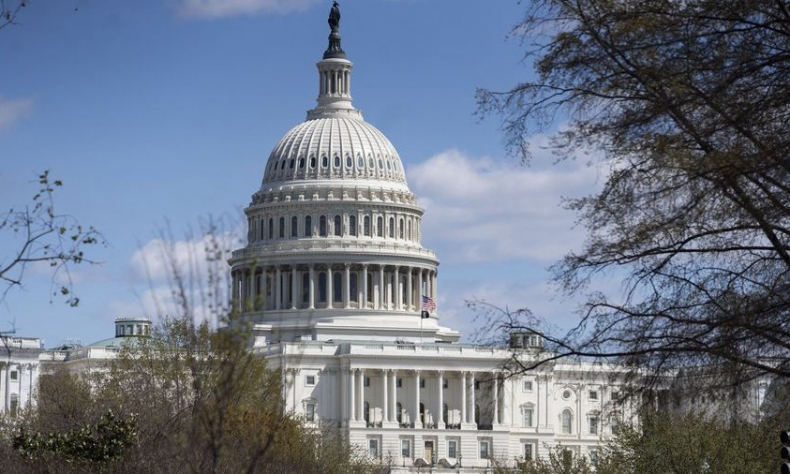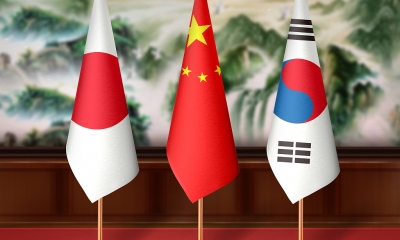US Strategic Competition Act to Further Strain Washington-Beijing Relations

As the cliche goes, there is not much there, meaning the all-too-popular narrative about China has driven this more than 200-page effort to further strain Washington-Beijing relations.
Republicans and Democrats in the United States Senate agree on almost nothing. However, when it comes to China, U.S. politicians on the right and left are quick to concur that Beijing presents nothing but danger to American interests.
The latest example of China bashing in Washington occurred a few days ago when the Senate Foreign Relations Committee voted 21-1 to support the Strategic Competition Act. Soon, the entire 100-member Senate will consider the act, and it is a foregone conclusion there will be a sizable majority vote to accept it. President Biden already has hinted he will sign it into law.
Key Democrats and Republicans gleefully lined up to celebrate this piece of legislation. Reuters quoted one Democratic senator who claimed the act would “finally meet the China challenge across every dimension of power, political, diplomatic, economic, innovation, military and even cultural.”
Quite a list. Reading it, one can almost hear movie industry executives in Hollywood discussing how they will create the perfect fictional monster that is eager to destroy American…culture.
Let us leave the sarcasm there and return to a review of the SCA. Members of the Senate Foreign Relations Committee could not resist packing many anti-China amendments into the draft of the legislation. One would compel U.S. officials to boycott the upcoming 2022 Beijing Winter Olympics. Recognizing that some form of an American boycott next winter is a foregone conclusion, this amendment offers a “we’re showing toughness” message that millions of Americans will quickly digest and support. But it lacks any substance: Will anyone not living in the United States watching next winter’s Olympics truly care if U.S. officials are not there? Their absence will be talked up by American media as a way to gin up some controversy, but no one inside the Chinese government, the country’s National Olympic Committee or the International Olympic Committee will shed any tears. Most importantly, American athletes will be in Beijing; there is no way any U.S. boycott will include keeping its athletes home.
Taiwan also is discussed in the SCA. Using all-too-familiar rhetoric, the act states Taiwan is a “vital national security interest of the United States.” In addition, Taiwan is urged to “increase its defense spending.” Of course, when Taiwan makes deals for military hardware, it does so with the United States. Therefore, left unstated in the bill is that the American military-industrial complex gets a bit richer every time Taiwan buys more military equipment. We also should not forget the conveniently timed remarks of a former U.S. diplomat. Bloomberg reported just a week ago that Richard Bush argued Taiwan must spend more money on defense. Bush added that Taiwan could not expect the U.S. to come to its aid in any military conflict “on Day 2,” so Taiwan must be stronger so that it can hold on in any war.
Of course, the comments about Taiwan in the SCA bill only go so far: The bill acknowledges the U.S. is not seeking to restart diplomatic relations with Taiwan. Crossing that red line would have implications for the region and the world that no one wants to fathom.
The draft of the legislation asserts that Beijing “views its Leninist model of governance, ‘socialism with Chinese characteristics,’ as superior to, and at odds with, the constitutional models of the United States and other democracies.” It adds that China intends to establish hegemony in Asia and use it as a launching pad to become “the leading world power.” These statements run counter to the expressed interests of the Chinese government. China’s stated goals of seeking better cooperation with the United States, enhancing its prosperity at home and defending its strategic interests are flipped into something Orwellian: Better cooperation really means worse cooperation; enhancing domestic strength really means enhancing international strength; and defending strategic interests means expanding hegemony. Sadly, identifying China, or any nation for that matter, in hostile ways allows America to undermine cooperation, seek ways to expand international strength, and, yes, maintain hegemony.
As you might expect, significant attention is paid in the bill to alleged Chinese efforts at using technology for nefarious purposes, including spying on foreign governments and citizens. As U.S. media dissected that headline-grabbing morsel, they forgot that allied governments apparently were subjected to this kind of eavesdropping by the United States throughout the last decade. The most embarrassing allegations involved spying on Germany and required President Obama to walk a delicate diplomatic tightrope as he sought to maintain strong relations with the German government. Remember, too, that American citizens have not been exempted from this governmental overreach. The American Civil Liberties Union has stated that “an array of novel and intrusive surveillance techniques” has been used on “countless Americans who have never been suspected of any crime.”
Yes, the Strategic Competition Act soon will become law. When it does, significant media attention will be paid to the message that the U.S. government is getting tough with China. But as the cliche goes, there is not much there, meaning the all-too-popular narrative about China has driven this more than 200-page effort to further strain Washington-Beijing relations.
The article reflects the writer’s opinions, and not necessarily the views of China Focus.
 Facebook
Facebook
 Twitter
Twitter
 Linkedin
Linkedin
 Google +
Google +







